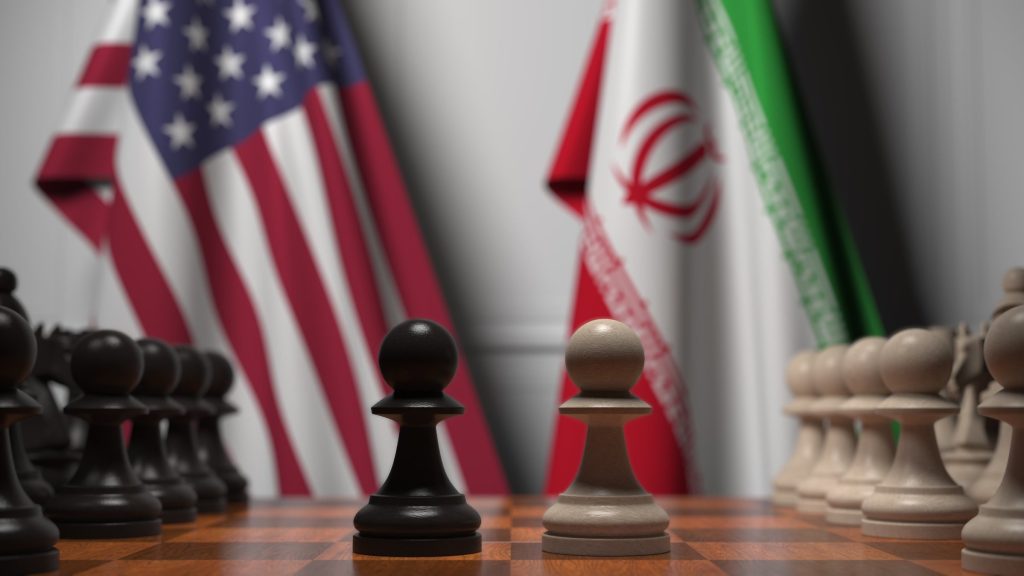During his first term, U.S. President Donald Trump unilaterally withdrew the United States’ signature from the Joint Comprehensive Plan of Action (JCPOA), which had been signed in 2015 between Iran and the P5+1 (the five permanent members of the U.N. Security Council, plus Germany). After he returned to power in the last election, President Trump forced Iran to sit at the negotiation table to discuss the future of the Iranian nuclear program.
Iran has lost much of its political and military power in the Middle East after the al-Aqsa Flood. There are three main reasons for the Iranian loss of power. First of all, Iran has lost its main regional ally, the Baath regime in Syria. The Syrian opposition overthrew the Assad regime on Dec. 8, 2024, and largely ended the Iranian influence in the country. Second, Israel has destroyed Hezbollah, the dominant political and military power in war-torn Lebanon and the most effective Iranian proxy in the region. Thus, Iran’s control of Lebanon has mostly ended. Third, Israel directly targeted Iran and Iranian forces deployed in the Middle East.
Eventually, Iran fell into a vulnerable situation. Nowadays, Iran, which is weakened militarily, is in a defensive position. Therefore, the U.S. government thinks that it is the right time to increase pressure on Iran and urges Tehran to engage in talks. Following the persistence of the Trump administration, Iran was compelled to agree to negotiations with the U.S.
Last month, Trump sent a letter to Iranian Supreme Leader Ayatollah Ali Khamenei calling for direct nuclear negotiations with Iran. Iran responded to the letter via Oman, and thus the first round of indirect nuclear negotiations was held in Muscat, the capital of Oman, on April 12. As a result of the talks, both the Iranian and U.S. sides announced that the negotiations were “positive and constructive.”
The two sides have met in Rome, the capital of Italy, on April 19 for the second round. The negotiations were held at the Omani Embassy in Rome under the mediation of Omani Foreign Minister Badr al-Busaidi. During the talks, the Iranian delegation was led by Foreign Minister Abbas Araghchi, while the U.S. was represented by Trump’s special representative for the Middle East, Steve Witkoff.
Iran’s Araghchi stated that “we were able to reach a better understanding on a number of principles and goals” during the discussions in Rome. According to Araghchi, “the talks took place in a constructive atmosphere and are progressing.” After declaring that “very good progress” had been made in the nuclear talks, representatives of the two countries stated that the third round will be held in Muscat on April 26.
Implications of negotiations
However, sitting at the negotiation table with the U.S. may cause potential problems for Iran, since this move cannot be explained within the long-term Iranian political discourse, which is mainly based on anti-American sentiments. Considering that Iran has been experiencing great political and economic turbulences, it is obvious that Iran had to accept the American invitation due to political, economic and social reasons, which may cause further problems for the Iranian regime.
Iran faces a dilemma. An agreement with the U.S. has many advantages and disadvantages. On the one hand, if Iran reaches an agreement with the U.S., U.S. sanctions can be lifted and Iran will be able to recover its economy. Iran may even attract foreign investments from Western countries, including American companies. Economic recovery may alleviate domestic political tension.
On the other hand, if Iran reaches an agreement with the U.S., the Iranian regime may weaken in the domestic context. In case of reaching an agreement, Iran will lose one of its raison d’être, the anti-American and anti-imperialist political discourse, which will weaken the legitimacy of the regime in the eyes of a large portion of the Iranian people. The Iranian regime has largely derived its legitimacy from its anti-Western political discourse.
Similarly, failure to reach an agreement is also a cause of a dilemma for Iran. On the one hand, if Iran does not reach an agreement with the U.S., it has to confront both Israel and the U.S. It is clear that Iran is wary of confrontation with Israel, because in the case of direct confrontation with Israel, Iran may be targeted by the U.S., which will worsen the regime’s stability.
It seems that reaching a final agreement between the U.S. and Iran is unlikely because the expectations of the two sides are different. Trump wants to destroy the Iranian capability of developing nuclear energy, while Iran asks for some guarantees for limiting its uranium enrichment. On the one hand, U.S. officials, such as Foreign Affairs Minister Marco Rubio and White House National Security Adviser Mike Waltz, have announced that the Iranian nuclear program must be stopped.
On the other hand, Tehran wants recognition of its right to develop nuclear energy and enrich uranium. Furthermore, the Iranian side also declared that it would not negotiate non-nuclear issues such as Iran’s missile capabilities. In addition, mutual mistrust between the two sides will prevent the process from being successful.
In conclusion, there are still many obstacles to overcome on bilateral and regional issues such as the scope of Iran’s nuclear program, the conditions for lifting sanctions and the changing regional balance of power.


